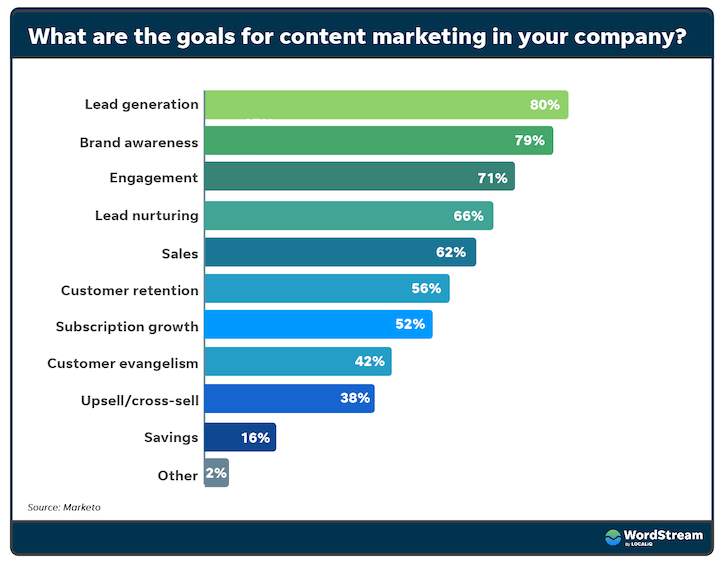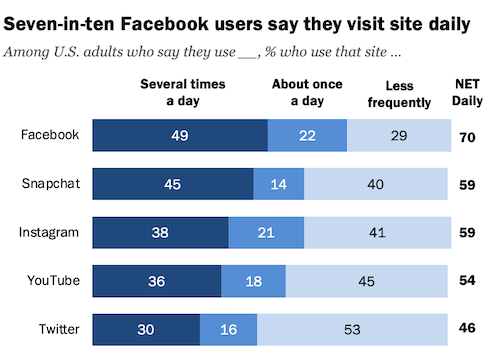
Here are some highlights. You can listen to the full episode here.
But, as alluded to previously by Jones, understanding customer motivations and acting on them can be tricky. “One of the cultural changes I tried to make,” he says, “was [in] the usage of that research… It’s one thing to ask customers and get their insight, it’s another thing altogether to put that back into the experience. And it wasn’t necessarily that it was being ignored, it was more, maybe the questions we were asking were broad questions and what we needed to do was focus on specific questions about certain things.”
Good Growth CEO James Hammersley explains this dynamic in commerce:
Jones offers some more context for this outlook at ITV in discussing the role of advertising in the VoD service.
Jones cites his and ITV’s work with Good Growth, saying “Bringing in the subject matter expertise and the maturity around experimentation allowed us to learn… but secondly to understand the value of the experimentation and the tests we were doing as well, because it’s back to that point where, if we haven’t got time to focus on experimentation and testing, then we really don’t have time to evaluate what’s important for our business and for our customers.”
What is clear from listening to Jones is that it can be hard to balance delivery and discovery in a product management role, and it is here where external input can be valuable.
“I think the biggest change I was trying to make was to try and move product management away from product ownership. Product ownership is a role that you play inside the scrum team and it shouldn’t be all encompassing. …the amount of time the product owner was spending on delivery [or] with a delivery mindset meant there wasn’t the opportunity to think about how the customer and the data relates.
So, how do brands need to think about product management in 2022? On a recent Good Growth podcast, ITV’s Head of Product Stuart Jones spoke about his role in creating a better video-on-demand (VoD) service, and touched on the issues of discovery, delivery and design.
The product management job, says Jones, is one where discovery takes place. He and his team have been “trying to shift the balance” and move from one day a week of discovery and 4 days a week delivery, to the other way around, “more of a 70:30 split in favour of discovery work.”
Product managers are not gatekeepers to design
“Often the shopper journeys, experiences, payment options, et cetera, are the same from one brand to another. Worse still, many brands are investing to stand still – without realising they are not moving ahead. We call this the Red Queen Syndrome (from Alice in Wonderland).”
“How do we try and fit this experience in?” Jones asks. “One of the levers I don’t pull is the volume of advertising that we’ve got, because there’s substantial revenue tied in to the distribution of advertising on the platform. But the levers I do have are… [making] sure that the customer experience is good and as seamless as it possibly can be, to make advertising a tolerable if not enjoyable experience for people as well.”
To do so, says Jones, would be to “outsource one of the fundamental insights that a product management team has, which is experimentation and knowledge about the success or failure rates of something.” What he sought to achieve with Good Growth, was a partnership where his own teams weren’t necessarily “consumed by an experiment or test.” Jones adds that this approach has “really helped us, culturally and tactically”.
“Testing lets you prove whether you are moving ahead or not. Therefore, to gain market share and grow margin, it is critical brands innovate and test quickly and at scale – based on responding to customer failure.”
This question goes to the heart of why product management, insight and testing have crucial roles in determining growth in 2022. Because investing in UX and CX will not always be a source of differentiation or a sure-fire method of increasing sales.
The types of testing that ITV and Good Growth have worked on include experimenting with positioning and experience of upsell messaging within the ITV Hub platform, as well as interpreting the success of tests around content discovery on the platform (such as how content ‘rails’ or ‘shelves’ are presented) in a way that controls for the popularity of any particular show.
There were many businesses that quickly had to make fairly obvious operational changes in 2020, but beyond that, how can brands prioritise their investment?
Customer research needs to be backed by data
Product management is a pragmatic discipline that is constrained by prioritisation.
Consequently, customer insight is vitally important in 2022. “We have a fantastic customer research team,” says ITV’s Jones. “I’ve worked in so many companies that talk about customer research but don’t actually follow through on it or see the value.”
The last two years have been a testing ground for the value of customer experience to brands. Whether it be engineering D2C propositions from scratch, moving sales and service to online channels, creating contactless experiences, or offering more flexibility in fulfilment.
In fact, Hammersley cites “understanding failure” as the biggest opportunity for brands in 2022. “It is the single most important metric for driving margin and market share growth – irrespective of channel. And testing will help any brand to understand why failure occurs.”
Product managers must learn to balance delivery and discovery
“What I don’t do as head of product,” says Jones, “and I don’t think a product manager should do, is be almost the gatekeeper to design and experience.”
Jones cites the old adage, ‘the customer will tell you one thing but do something different’, and says, “[in our research], we had to try to understand whether the pain point was real and genuine – and data was enabling us to do that.”
There has been a lot made of changing consumer behaviour during the pandemic, particularly new demographics moving online and a perceived breaking down of loyalty amidst increased competition.
Can experimentation be outsourced?
Though Jones says that Good Growth “augmented our knowledge in the area” and helped with “cognitive capacity”, he adds that “one thing I was keen to not do was to say ‘experimentation is done by somebody else’.”
Good Growth’s James Hammersley says simply that, “[Product and Insight teams] should prioritise the product roadmap on the loss of revenue, and to address any brand and technology constraints.”
He continues, “We have to foster that way of working collaboratively. And we have to try and make sure that the decisions that we make are based on business prioritisation and trying to ensure that what the customer gets is what they require, but also ladders up to that business goal.”
But, of course, there is an art to collaborating with consultancies on this sort of work, to get the level of integration right.
“A customer will always say they want less adverts and they will always say they don’t want to be interrupted by any [subscription] upsell, and that’s one of those key business drivers for us.”






